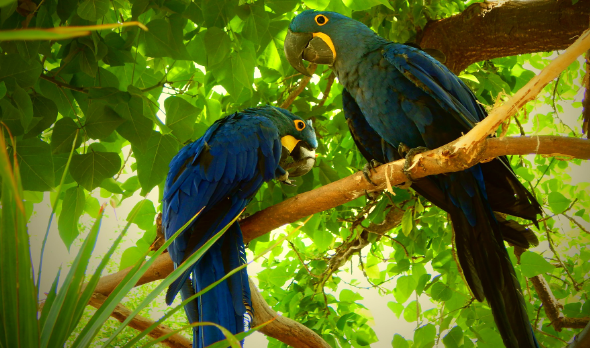
Hyacinth Macaw Protected Under the Endangered Species Act
According to a recent release, the US Fish and Wildlife Service has listed the hyacinth macaw – the largest species of parrot in the world – as a threatened species under the Endangered Species Act (ESA), effective September 12th, 2018 (as published in the Federal Register on August 13th, 2018).
Because of a shortage in nesting sites from deforestation and illegal poaching for the pet trade across Central and South America, hyacinth macaws are at risk – only a small population of 6,500 hyacinth macaws remain in the wild. Since 1990 the wild population has shown signs of a recovery and may be stabilizing probably in response to conservation projects, Ecotourism and local support from Ranchers.
The ESA listing includes a species-specific rule that will ensure protection for wild hyacinth macaws but allow import and export of certain captive-bred hyacinth macaws and domestic trade across state lines, since these activities are not a threat to macaws in the wild. International trade in macaws is strictly controlled under the Wild Bird Conservation Act and CITES. The ESA ruling does very little to stop local pet trade in South America as that trade is already banned by CITES.
HARIs position is to continue to freely allow interstate trade between Breeders and /or Pet Owners with out draconian permits that drives legal trade on USA captive bred birds underground. State laws, which can be more restrictive than federal regulation/law, but not never less restrictive, have a very negative impact when a species is put under ESA regs. In 27 of 50 US States, species that are listed on ESA become illegal to own in those states even if captive bred.
FWS news release
Learn more: Bird Life International



